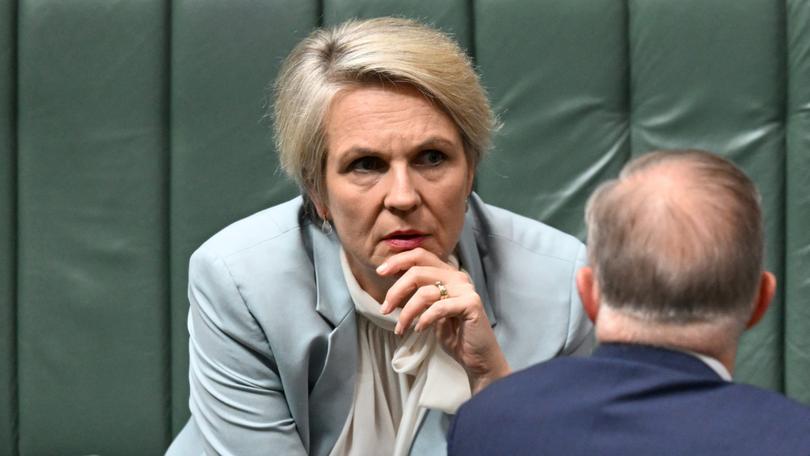NATURE POSITIVE LAWS: Even top green group Australian Conservation Foundation joins chorus against overhaul
A leading green group has joined the chorus of critics sounding the alarm about Labor’s controversial re-writing of Federal environmental protection laws.

A leading green group has joined the chorus of critics sounding the alarm about Labor’s controversial re-writing of Federal environmental protection laws.
The Australian Conservation Foundation is concerned a planned Federal environment watchdog would be “undermined from the very start” if the minister was handed unfettered power to approve projects.
The green group has also criticised the “messy” consultation process on the laws, adding to the widespread disquiet about how the new regime is being developed.
Sign up to The Nightly's newsletters.
Get the first look at the digital newspaper, curated daily stories and breaking headlines delivered to your inbox.
By continuing you agree to our Terms and Privacy Policy.The Nightly last week revealed the grave fears inside the mining sector about the Federal Government’s Nature Positive plan, with green groups now going public with their own concerns.
It means Labor is now facing pressure from all sides as it attempts to deliver a long-promised overhaul of the Environment Protection and Biodiversity Conservation Act before the next election.
Environment Minister Tanya Plibersek is promising the overhaul — announced in December 2022 — will improve protections for the environment while also speeding up project approvals.
But industry fears it could add extra red tape and legal risks, while environment and climate groups are worried it won’t go far enough — in particular to stop fossil fuel projects.
Among the conservation council’s major concerns is the scope of new powers allowing the minister to “call in” projects for assessment, bypassing the full scrutiny of the Federal environmental protection agency.
The green group has been briefed on the proposal during multiple closed-door consultation sessions.
ACF chief executive Kelly O’Shanassy said under the Federal Government’s plan, the minister would be able to “call in” projects for assessment under any circumstance.
“You can have an EPA — and the (Government’s) legislation around that is really strong — but they’re undermining that by allowing the minister just to call in projects anytime, for any reason and not apply the same standards that the EPA would have to apply,” she said.
Ms O’Shanassy was concerned big corporations and political donors could pressure a minister to use sweeping powers to approve a project that would benefit them.
She was not opposed to “call-in” powers entirely, saying it could be reasonable in cases where it satisfied a clearly defined national interest test.
The conservation foundation’s position puts it at loggerheads with the Minerals Council of Australia (MCA), which has also attended the private consultation sessions on the EPBC overhaul.
MCA chief executive Tania Constable said ministers — not unelected public servants — were “best placed to make decisions in the interests of Australian people”, taking into account all environmental, economic and social impacts.
“The Minerals Council has been clear about the significant risks of duplicative, complex and uncertain approvals processes pose to the minerals sector, the broader economy and the environment,” she said. “Australia has one of the most comprehensive environmental approvals processes in the world.”
Ms Plibersek’s office would not confirm details of the “call in” powers when asked by The West.
“Experts from environment and business groups, including the Australian Conservation Foundation, are carefully examining drafts of the legislation to make sure our reforms will be as effective as possible,” the spokeswoman said. “We’ll take everyone’s feedback into account as we design our strong new laws in the national interest.”
Ms O’Shanassy said it was a “shame” consultation on the once-in-a-generation overhaul had been limited to closed-door briefings in which attendees were barred from bringing in phones and must resort to hand-written notes.
But she said it was “very rich” for the mining sector to complain about the secrecy, given it also had representatives at the private sessions.
She rejected suggestions that strong environmental protections would come at the expense of the economy, expressing confidence that the federal EPA would deliver quicker decisions.
“That the economy can only grow if the environment suffers is a long-held myth — but it’s not true,” she said. “Our economy is underpinned by a healthy environment.”
